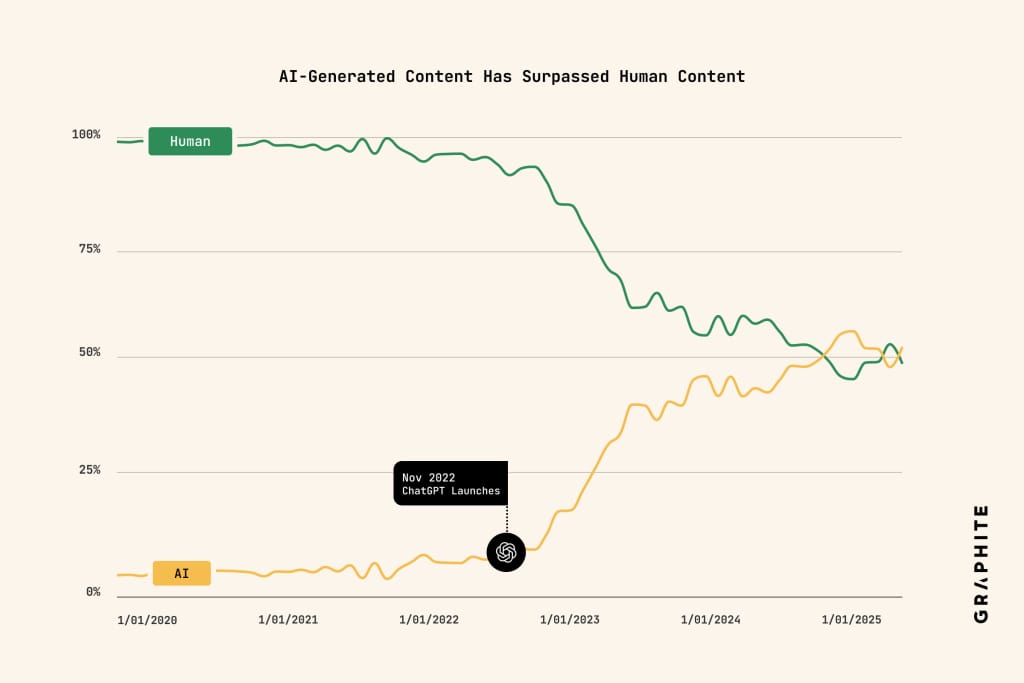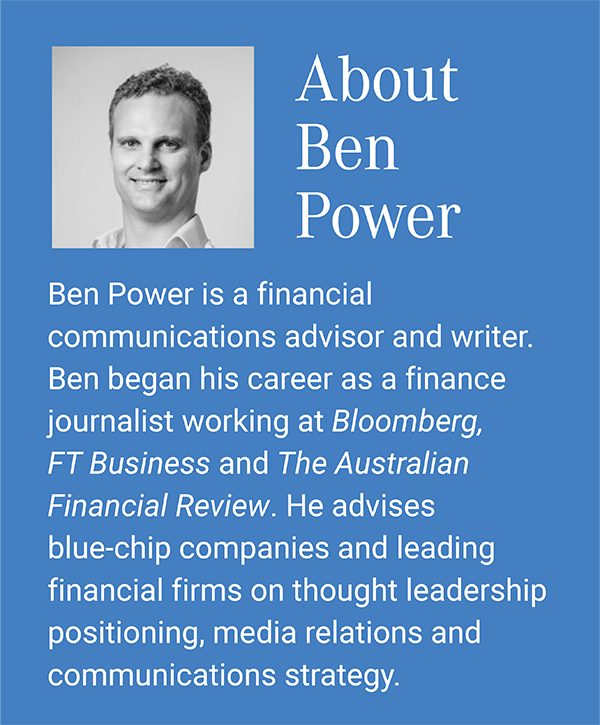- Ben Power
- Posts
- Evil, biased, dangerous and dead. Should you just ignore the mainstream media?
Evil, biased, dangerous and dead. Should you just ignore the mainstream media?
Not that long ago, I met with the managing partner of a large law firm to discuss a communications challenge. We got to talking about the media. He said, memorably, that engaging with a journalist is “like being in a cage with a tiger”. “You can be seduced by their power, but you need to be careful because they can also bite you.”
As a former journalist, I have been on both sides of the tiger fence, and I can understand the view that the media is dangerous and should ideally be avoided. For many, this view is reinforced by unpleasant experiences like being misquoted, targeted in campaigns, or constantly reading ‘biased’ coverage.
Not only do many believe the media is inherently bad, but that with ‘dwindling audiences’ and broken business models, the mainstream media is ‘dead’.
It’s definitely easier now to dodge the media’s traditional gatekeeping role. Communicators and marketers have multiple options, including their own social media channels, to get their message out (in marketing terms, ‘owned’ media).
So one might safely assume it’s possible to ignore the media (a part of ‘earned’ media).
But with AI ‘slop’ flooding the internet and making it difficult to be heard and trusted – creating, what I would call a ‘credibility economy’ – I would argue that despite the media’s challenges and biases, strategic and well-planned engagement with the fourth estate is becoming more important than ever for several reasons.
1. Audience and influence
The first is reach.
We keep hearing that the media is ‘challenged’, but it’s mostly been a revenue challenge, not an audience challenge. Despite what many believe, the news media’s audience, particularly when you include online, is still enormous.
Some 22.4 million Australians, or 98% of Australians aged 14+, consume news publishing each month, according to Roy Morgan.
And that is reading alone (newspapers, magazine and websites) and doesn’t include video and audio from the likes of television and radio. Even in the niche area of finance, The Australian Financial Review reaches 3.2 million Australians each year.
Take an honest look at your audience on Twitter/X, LinkedIn, YouTube, etc. For most organisations, it’s not large (apart from a few influencers who plug away full-time).
The media still provides access to the big audiences you need to build awareness of your brand and viewpoint.
The media’s reach means it still sets the agenda. It still determines what topics are important, how those issues are framed, and what is acceptable (the ‘Overton window’).
An issue or brand might be big online or in social media, but it really only reaches the broader public and political consciousness (where the real game is won) when the media covers it.
Most people in serious positions of power, who make real decisions, are also big consumers of media.
If you want to influence or reach the general public or power players, you need to be engaging with the media.
2. Brand and sales growth
As I’ve mentioned before, there are two games marketers and communicators need to play: building your brand (a long-term game) and generating sales (a short-term game).
The media is an effective tool because it does both at the same time.
When you get positive coverage, it not only builds brand awareness (long), but also delivers a spike in sales (short).
Adding media/PR to your mix also enhances the effectiveness of your other marketing and comms activities. A lot of marketing strategies are now focused on a single tactic or channel, say LinkedIn. But research clearly shows that communications and campaigns that deliver the best returns are multi-channel.
That’s why I recommend a ‘hub-and-spoke’ approach, where your core idea is leveraged into multiple channels: LinkedIn, YouTube, TikTok, your website, newsletter, etc … and the media.
What’s more, media is a high-leverage activity. Producing content requires lots of resources; but with a few-minute interview with a journalist as a commentator, you can reach lots of people.
3. A higher bar
One little-appreciated benefit of seeking media coverage is it forces you to raise the bar on the standard of work you do.
A colleague who led communications at a Big Four accounting firm when they were brilliant marketers and communicators said every piece of thought leadership was designed to get coverage in the media. He argued that aspiration improved their work significantly.
My experience bears this out. There is a huge difference between the quality of thought leadership and insights that gain traction in the media, and thought leadership and insights that the media ignores or that simply lives online.
To raise the quality of what you do, you should be aspiring to get coverage in the likes of The Australian, The Sydney Morning Herald and The Australian Financial Review.
4. Cut through
Some research estimates that more than half of articles produced online today are created by AI, prompting some to declare the internet is now ‘dead’ and ‘slop central’.

Source: Graphite
The amount of data and content created, consumed and stored on the internet is also increasing exponentially.
With all this noise, how on earth do you get noticed?
Gaining media coverage is one clear way to cut through.
5. Credibility
But perhaps the biggest reason to play in the media space is that it delivers credibility.
The advent of AI and the flood of content mean we are shifting from an ‘attention’ economy to a ‘credibility’ economy.
Winning firms – the ones who attract the best customers/clients, investors and talent – will be the ones that successfully build and demonstrate credibility.
Social media delivers attention, but not necessarily credibility.
Australians seem to consume a lot of social media, but they don’t trust it.
According to Roy Morgan, Australians trust news media brands three times more than social media.
The University of Canberra’s Digital News Report 2025 found 57% of Australians believe online influencers and personalities create a threat of misinformation. They’re similarly sceptical about the likes of Facebook and TikTok.
The report found that Australians might seek information from social media, but they then verify it by checking trusted news sources.
Journalists are sceptical and discerning. When you appear in the media, therefore, you are conferred a credibility that isn’t always available online. That is becoming more and more valuable.
You are in the media whether you like it or not
I completely understand why people want to avoid the media.
But the real truth is that while you think you can, you can’t.
If you are doing anything in Australia that is faintly interesting or impactful, the media will find you … in some cases hunt you down.
Every client I have appears regularly in the media – whether they’re running a proactive PR program or not.
What’s more, your competitors (the smarter, more skilled ones) are in the media – building their brand and getting their message across.
Not playing the media game is like being drafted into a match but refusing to play; your opponent keeps serving and racking up the points 0-15, 0-30 … with no return of serve from you.
(It’s even worse: while you sit in the corner, the ‘umpire’ (the media) then starts slamming balls at your body … in front of your audience.)
Why let journalists and your competitors define your reputation? Or the terms of the debate and discourse?
Don’t you deserve a say?
It’s better to get on the front foot and build relationships and get your message out.
I’m not saying that’s always easy.
I’m not saying give up on other channels.
And many people and organisations, of course, are engaging in effective media/PR efforts.
But others are avoiding the media; or, even worse, are ambivalent, which creates a potentially dangerous half-hearted, poorly planned engagement.
Yet when you look at the evidence, there are a lot of benefits (and downsides to avoid) to playing in the media arena with a plan and purpose.
With the right mindset and skills, you can play a bigger communications game by being fully involved in the media arena. You may even be able to tame the journalist tiger … or at the very least avoid having your head bitten off!
Let me know your thoughts and experiences with journalists.
Ben
